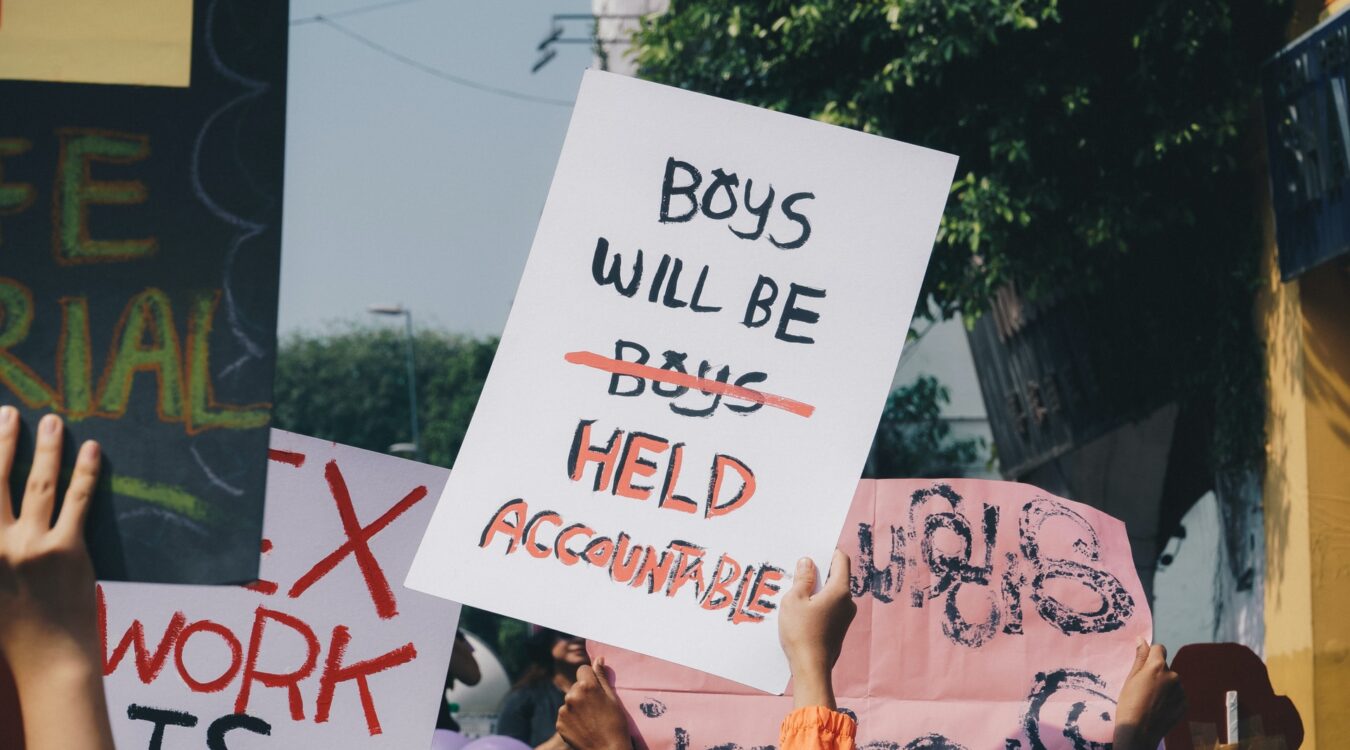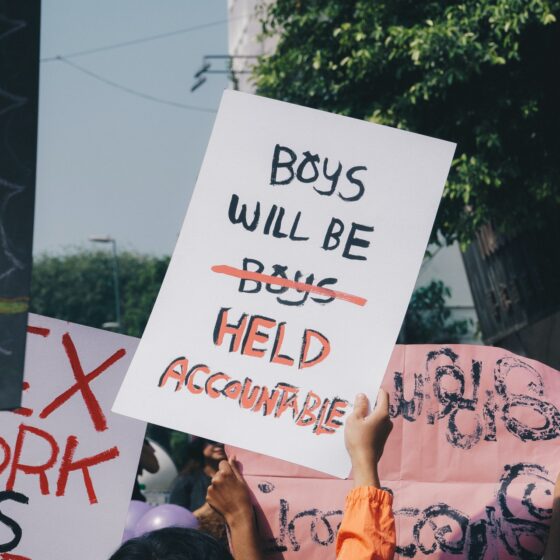Writers and filmmakers are queuing up to tell the horrifyingly compulsive tale of Jeffrey Epstein. The glamour of his trappings, the privilege of his acquaintanceship, the depth of his wallet combined with his unfathomably sordid centre where a soul should have been making for grim but necessary reading and viewing.
One documentary team has created something very different, however, with its four-part documentary series, which focuses the story firmly on the young women who crossed into Epstein’s dim world.
‘We knew there were other people telling this story, but the way we wanted to tell it was through the lens of the survivors,’ explains executive producer Robert Friedman, CEO of Bungalow Media + Entertainment, which made the series. Note his use of the word ‘survivors’, so much more positive and assertive than victims, though the girls were undoubtedly both.
‘We allowed them the space to tell us their stories, and everyone is different,’ remembers producer Ricki Stern. Speaking of Epstein and his alleged fixer Ghislaine Maxwell, she says, ‘They really masterminded how to recruit these women, what their needs were. They promised them things, and things were okay… until they weren’t.’
The thing people generally find so extraordinary about Epstein is not only the wealth which he deployed to such evil ends but, the status of the people around him, including princes and former presidents. Cloaked in a privilege of wealth, we are still told that no one saw or heard anything. That despite being exposed, their rich host and benefactor remains yet another ‘misunderstood’ man. Friedman expresses the cynicism of many, asking, ‘Are they enablers? Cognitive dissonance? Victims themselves?’
Whatever the reason, Epstein’s proximity to power clearly played a part in his jaw-dropping plea deal
Whatever the reason, Epstein’s proximity to power clearly played a part in his jaw-dropping plea deal in 2008 which saw him strike a bargain with both district and federal attorneys, continue his life exactly as before and remain an established figure in the global, financial and political world – this, after 40 affidavits from young girls willing to testify against him. Why wasn’t he dealt with appropriately by the justice system and then forever banished as a social pariah? Even these filmmakers admit, ‘We don’t know why.’
Even more disturbingly is what this documentary uncovers about the means by which Epstein, and allegedly Maxwell alongside, targeted his young victims, who the filmmakers see as falling into two main groups.
‘This was the deliberate targeting of women from a certain type of background,’ explains producer Stern. ‘There is that one group who see the abuse as the norm and another group who have one searing experience, but they don’t return after it.’
Fellow filmmaker Annie Sundberg adds, ‘Just because they walk away, doesn’t mean it wasn’t damning.
‘It became clear that each voice speaks to a very specific approach by Epstein and Maxwell. It was important for us to understand what makes the girls psychologically susceptible.
‘Epstein and Maxwell had the ability to sniff out the vulnerabilities for each of the women they targeted. They knew how to groom women who were already in positions where they comfortable taking off their clothes, ie young models, or doing massage, or hustling. Each of these women thought they were making their lives better and, as we know, it turned out to be the absolute opposite.’
‘Maxwell weaponised class and gender,’ is how Friedman puts it. ‘We decided to go into this sophisticated web of female recruiters, led by Maxwell, who put victims at their ease and delivered them to Epstein as a result. We look very deeply at how they were recruited, how they were trained, how survivors were groomed.’ He pauses. ‘It still remains amazing.’
Amazing too is the shift in social awareness between 2008 when Epstein skipped away from the courtroom back to his parties and 2019 when fresh charges were made. The filmmakers credit the MeToo movement leading to more people being ready to come forward with accounts of personal trauma, even better understanding about the emotional repercussions of assault cases, leading to lengthier statutes of limitations on some cases being imposed. It all adds up to a slight cultural shift, still evolving but enough to inspire a willingness to hear these women’s stories, without discounting and discrediting them as both state and federal attorneys did just over a decade ago.
This already complicated tale got even more challenging when, three days before the documentary was due to be aired in the US, news came through of the arrest of Maxwell. The filmmakers reveal they got straight on the phone to all the women they had spoken to, making swift plans to interview them again.
‘Maxwell becomes the proxy, the person who faces the accountability for these crimes and, from our survivors’ standpoint, to be able to face someone that was involved with this, after the abuse had been hidden in plain sight for so many decades, and with so many powerful people who’d decided they didn’t see it.’
Our first priority for the women was that there be some kind of closure
Forever denied the chance to face Epstein in court after he died in prison last summer, for the women, ‘it’s about facing the person they accused,’ according to Friedman. ‘The judge gave them the chance to tell their story in open court, which was great. Our first priority for the women was that there be some kind of closure for these survivors as a result, so this just brings it one more step, it provides a potential opportunity for closure.’
Whether or not these women will ever have the chance to unburden themselves of their traumatic pasts, they can take heart from the fact that the documentary’s airing in the US at the beginning of this month has already seen an increase in calls to victims’ helplines. Sundberg reflects, ‘It’s having a direct impact on women, who are reaching out for help, which is great.’
And Stern adds of the survivors, ‘They don’t want this to happen again. They want to be the role models for others to say, “This is painful, it happened to me.”’
‘Surviving Jeffrey Epstein’ is a four-part documentary series that begins on 25 August on true crime channel Crime+Investigation.









